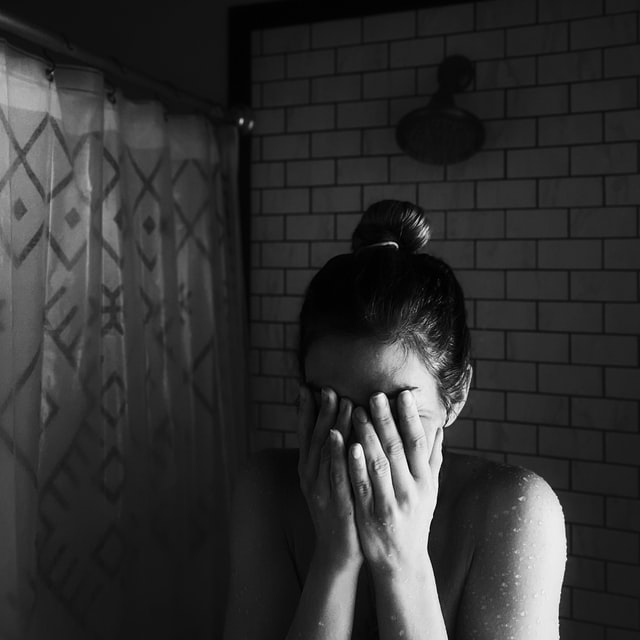All opinions are mine and mine alone.
Anxiety in women; 6 tips to manage
Anxiety is a type of mental health disorder that prevents people from being able to live their life in a normal way. Women with anxiety may find it hard to think, sleep or take care of themselves. Anxiety is a common issue for many women. It can manifest itself in a variety of ways, like feeling worried or irritable, and may also cause sleep difficulties and make it difficult to enjoy life. While small doses of anxiety can be beneficial, too much of it can have a negative impact on your physical, emotional, and mental health. The anxiousness that interferes with regular activities can be detrimental and may be a sign of an anxiety disorder. Anxiety is more common among women than men. Anxiety is more common in women than in men, which may explain why 51% of females will experience some form of mental health disorder at some point. Women are also more likely to experience both anxiety and depression. There are many treatments for anxiety, but you can also benefit from making changes to your lifestyle without receiving treatment. These changes could help you avoid getting into a vicious cycle.

There are many ways to manage anxiety, from learning about its causes and connections to having a sense of control over a situation, for example. Some strategies that may help are:
Find Time for Self-Care
Self-care might include anything that makes you feel good. Taking the time each day to do at least one positive activity for yourself can help reduce stress, which can help to reduce anxiety in turn. Everyone has different ideas of what self-care is, but some examples include exercising, taking a bath, reading, or spending quality time with your loved ones. You can also pick up a hobby or treat yourself to something that you like so that you feel rejuvenated both inside and out.
Exercise
Physical activity is a great way to improve your mental and physical health- cutting down on anxiety levels, reducing stress, and improving sleep. The experts recommend that you do at least 60 minutes of light aerobic exercise, like walking, during the day- even if it’s just 20-30 minutes at a time. It’s important to speak to your doctor if you’re new to exercising and considering starting a new regime. You don’t have to join the gym, you can choose light and refreshing exercises such as yoga, swimming, or some sport as well.
Get Enough Sleep
Sleep difficulties are more common in those with anxiety than in the general population. A recent study found up to 50% of people with generalized anxiety disorder have issues sleeping, often as a symptom or risk factor. One of the most powerful things you can do to improve your sleeping habits is to make sure you avoid substances that may impair your sleep, like coffee, alcohol, and cigarettes. Be sure to practice good sleep hygiene by altering your sleep schedule, avoiding electronics before bed, and creating a soothing dark space.
Don’t Over Consume Caffeine
While having a little caffeine can help with driving your energy and alertness, having too much can actually make you anxious and lead to headaches & sleeping problems. You may need to consider the amount of caffeine you are drinking daily. For a healthy lifestyle, it is recommended not to exceed 400 milligrams of caffeine. But pregnant women should only drink up to 200 milligrams a day. Buy products made with less than 300 mg of caffeine so that you can also avoid high quantities if possible.
Try some CBD
CBD is a great way of reducing stress and anxiety. It binds itself to the endocannabinoid receptors in our body and helps regulate pain, appetite, sleep, and even mood. It is important to try such natural supplements since pharmaceuticals that are prescribed for anxiety are quite addictive and detrimental to your health in the long run. Choose a calming CBD hemp oil that also has terpenes in it for a better effect. Try to research full-spectrum, broad-spectrum, and isolate CBD to see which one will work best for you.
Try Meditation
Meditation techniques like mindfulness, yoga, and tai chi can make you more aware of the present moment. Studies have shown it can lead to decreasing anxiety levels. Research shows that meditation can affect the brain and positively work with improving attention and focus over time. It can also have a positive effect on neurotransmitters including serotonin. If you are a beginner at meditation, taking a class or practicing by watching video guidance would be the best way to start. Even a few minutes of meditation each day can provide noticeable benefits.
It is important to learn how to battle anxiety as a modern woman. Use these tips to help you cope with these situations to the best of your abilities.



Speak Your Mind